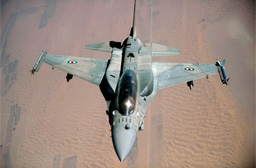JERUSALEM (Reuters) — Israel would oppose any U.S. F-35 warplane sales to the United Arab Emirates despite forging relations with the Gulf power, Prime Minister Benjamin Netanyahu said on Tuesday, citing a need to maintain Israeli military superiority in the region.
The statement comes in reaction to an article in the Israeli newspaper Yedioth Ahronoth claiming the Trump administration was considering a “giant” F-35 agreement with the UAE as part of last week’s US-led action by the Emirates to formalize relations with Israel.
Under understandings dating back decades, Washington has refrained from Middle East arms sales that could blunt Israel’s “qualitative military edge” (QME). This has applied to the F-35, denied to Arab states, while Israel has bought and deployed it. “In the talks (on the UAE normalisation deal), Israel did not change its consistent positions against the sale to any country in the Middle East of weapons and defence technologies that could tip the (military) balance”, Netanyahu’s office said.
This opposition includes any proposed F-35 sale, it added.
The Trump administration has indicated that the UAE may conclude new sales of unspecified US weapons after last Thursday’s normalization announcement.

- A UAEAF F-16 Block 60
- Developed specifically for the UAE Air Force. It is also called F-16 Desert Falcon.
2007 marked the largest procurement programmes ever undertaken by the UAE Air Force, with the final deliveries of the 80 F-16E/F Block 60 and approximately 60 upgraded Mirage 2000-9, giving the air force a considerable multirole capability. These two investments represented a total expenditure of around $10 bln, with additional spending on infrastructure and logistics.
Israeli Energy Minister Yuval Steinitz, an observer in Netanyahu’s security cabinet, noted that past U.S. administrations had “against our wishes” sold the UAE more advanced F-16 warplanes than Israel possesses as well as F-15 warplanes to Saudi Arabia.
However, even were Washington to sell F-35s to the UAE, Steinitz told public radio station Kan that they would be unlikely to pose a danger to Israel as the distance between the countries is more than twice the jet’s range without refuelling. “I would like to offer us reassurance. Any F-35 that ends up, ultimately, in the United Arab Emirates — not that we would be happy with this, as we always want to be the only ones [with such arms] in the region — threatens Iran far more than it does us”, he said, citing a foe common to Israel and many Gulf Arabs.

